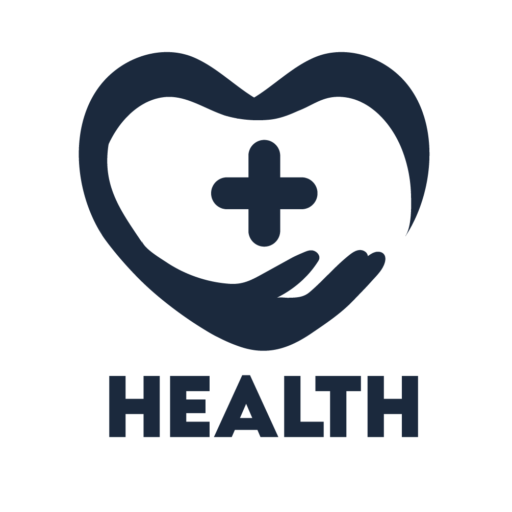Women’s health is a complex and dynamic journey that evolves across each stage of life. From childhood and adolescence to reproductive years, menopause, and senior years, each phase comes with distinct health considerations, challenges, and opportunities for wellness. Understanding the unique health needs at each stage empowers women to make informed choices, prioritize preventive care, and adopt lifestyle habits that support long-term well-being.
Health Considerations Across the Female Life Cycle In this blog, we’ll explore key health considerations across the female life cycle, offering insights into the common health concerns, wellness practices, and preventive measures that can help women thrive at every age.
Childhood and Adolescence: Building a Foundation
The journey begins in childhood, where physical, emotional, and cognitive development set the foundation for lifelong health. During adolescence, hormonal changes and the onset of puberty lead to significant growth and development. Here’s how to support health at this stage:
A. Nutritional Needs and Physical Development
Adequate nutrition is essential for proper growth, cognitive development, and immune health. Adolescents especially require:
- Calcium and Vitamin D: Important for bone development, as rapid growth requires a steady supply of these nutrients.
- Iron: Essential for energy and cognitive function, especially with the onset of menstruation.
- Healthy Fats and Protein: Support brain development and tissue growth.
Encouraging a balanced diet, regular physical activity, and sleep helps set healthy habits for life.
B. Emotional and Mental Health
Adolescence is a time of identity formation, social relationships, and academic pressures, which can impact mental health.
- Promote Emotional Resilience: Encourage open communication and stress-management techniques, such as journaling or mindfulness.
- Education on Menstrual Health: Open discussions around menstruation and reproductive health can help normalize these topics and reduce stigma.
Early Adulthood: Focusing on Reproductive Health
As women enter their twenties and thirties, reproductive health becomes a central focus, whether or not they plan to have children. Establishing a solid foundation for preventive care and healthy habits during this time can positively impact long-term well-being.
A. Preventive Screenings and Gynecological Health
Regular screenings and gynecological check-ups are crucial for early detection and prevention.
- Pap Smears and HPV Vaccination: Pap smears are recommended every three years to screen for cervical cancer, and the HPV vaccine helps prevent certain cancers.
- STI Testing: Regular testing supports reproductive health and prevents complications.
B. Hormone Balance and Menstrual Health
Hormone balance can affect mood, energy levels, and skin health. Tracking menstrual cycles can help detect hormonal imbalances and address them proactively.
- Contraception Choices: Contraception can also impact hormone balance. Consulting with a healthcare provider about the best options can help women make informed decisions.
- Manage PMS and Menstrual Discomfort: Nutrition, exercise, and stress management can mitigate symptoms associated with PMS, making this stage of life more comfortable.

Pregnancy and Postpartum: Maternal Health
For women who become pregnant, this stage is one of profound physical and emotional changes. Proper prenatal and postnatal care is vital for both mother and baby’s health.
A. Nutritional Requirements for Pregnancy
Nutritional needs increase during pregnancy to support fetal development and maternal health.
- Folate and Iron: Folate prevents neural tube defects, and iron supports increased blood volume.
- Omega-3 Fatty Acids: Essential for fetal brain development and maternal mood stabilization.
- Adequate Protein and Calories: Necessary for both maternal health and fetal growth.
B. Mental Health and Postpartum Care
Postpartum mental health is as important as physical recovery.
- Awareness of Postpartum Depression: Postpartum depression affects a significant percentage of new mothers, so early intervention and support are essential.
- Social Support and Self-Care: New mothers benefit greatly from family support, as well as self-care practices that help manage stress and provide relaxation.
Supporting women through pregnancy and postpartum recovery can promote long-term physical and mental health for both mother and child.
Midlife: Perimenopause and Menopause
In a woman’s forties and fifties, the body begins transitioning to menopause, marking the end of the reproductive years. This period can bring physical and emotional changes as estrogen levels fluctuate.
A. Understanding Perimenopause and Menopause Symptoms
The hormonal shifts of perimenopause and menopause can lead to symptoms such as hot flashes, mood swings, and sleep disturbances.
- Manage Symptoms Naturally: Lifestyle changes, such as regular exercise, a balanced diet, and stress management, can alleviate symptoms.
- Hormone Therapy (HT): For some women, hormone therapy can help manage severe menopausal symptoms. Consulting a healthcare provider can clarify the risks and benefits.
B. Bone Health and Cardiovascular Health
With the decline in estrogen, bone density and heart health become critical concerns during this stage.
- Calcium and Vitamin D Intake: Important for bone density, as osteoporosis risk increases post-menopause.
- Heart Health Monitoring: With decreased estrogen, cholesterol levels and blood pressure can rise, increasing heart disease risk. Regular exercise, a heart-healthy diet, and routine screenings help mitigate this risk.
Focusing on preventive care and healthy habits during midlife can support physical well-being and make the menopause transition smoother.
Senior Years: Maintaining Independence and Quality of Life
As women enter their sixties and beyond, health priorities shift to maintaining mobility, cognitive function, and independence. Preventive care and a focus on active living become crucial.
A. Physical Health and Mobility
Regular exercise and a balanced diet can enhance quality of life and reduce age-related decline.
- Strength and Balance Training: Resistance exercises and balance training help maintain muscle mass and prevent falls.
- Joint Health and Flexibility: Gentle stretching and low-impact activities like yoga can promote flexibility and ease joint pain.
Keeping the body active helps maintain mobility, which supports independence in daily activities.
B. Cognitive Health and Emotional Well-Being
Cognitive health is essential for maintaining independence and enjoying social relationships in senior years.
- Mental Stimulation: Puzzles, reading, and learning new skills or hobbies can help keep the mind sharp.
- Social Connections: Staying socially active improves mood, supports cognitive health, and can reduce the risk of depression and anxiety.
C. Regular Health Screenings
Health screenings become more frequent with age, focusing on early detection and management of chronic conditions.
- Bone Density Tests: Osteoporosis risk increases with age, so routine screenings can help manage bone health.
- Heart and Eye Health: Routine screenings for blood pressure, cholesterol, and eye health support overall quality of life and help detect early signs of disease.
Prioritizing preventive care in the senior years promotes health, reduces complications, and enhances quality of life.

Conclusion
Women’s health evolves uniquely across each stage of life, with distinct needs and challenges at every age. By understanding these shifts and proactively addressing them, women can empower themselves to make choices that support long-term wellness.
From the foundational habits built during childhood to preventive care in adulthood and a focus on mobility and cognitive health in the senior years, each stage offers opportunities to build a healthier, more fulfilling life.
Regular screenings, a balanced diet, exercise, and a strong support network are key pillars in maintaining health at any age. By prioritizing these elements and making mindful choices, women can navigate each stage of life with resilience, grace, and well-being.
